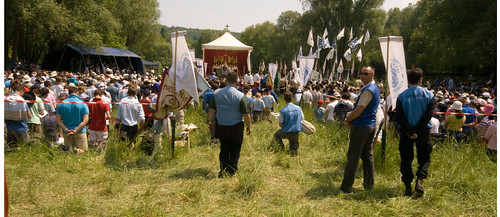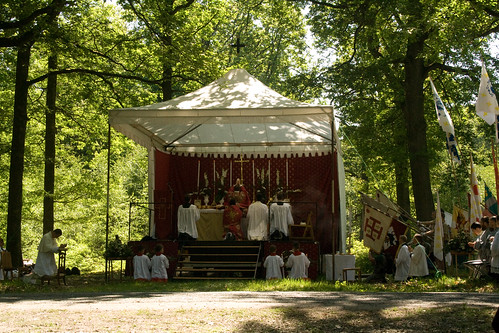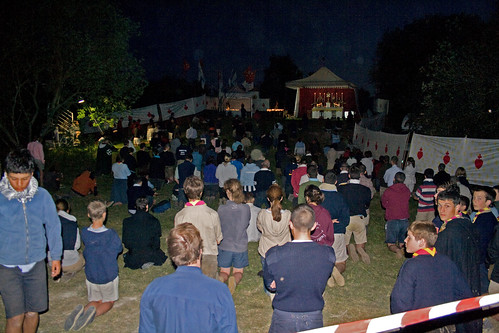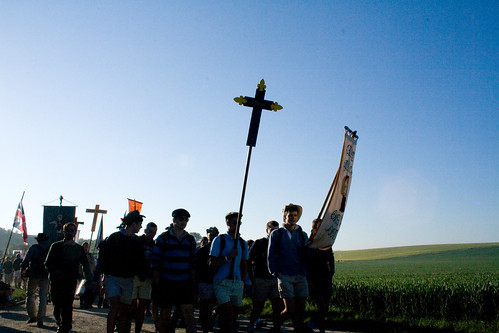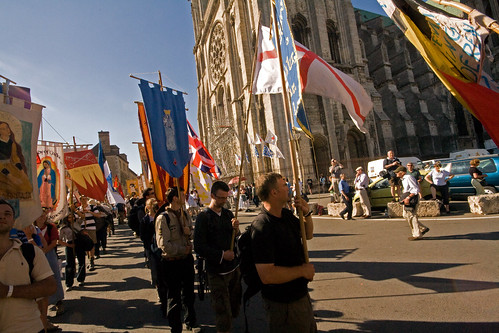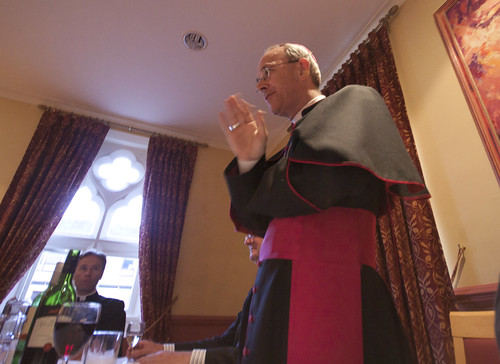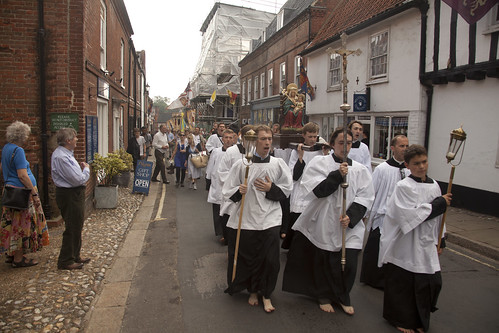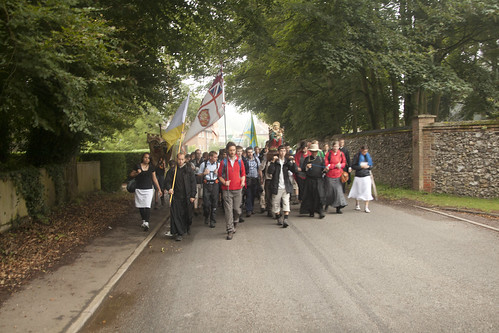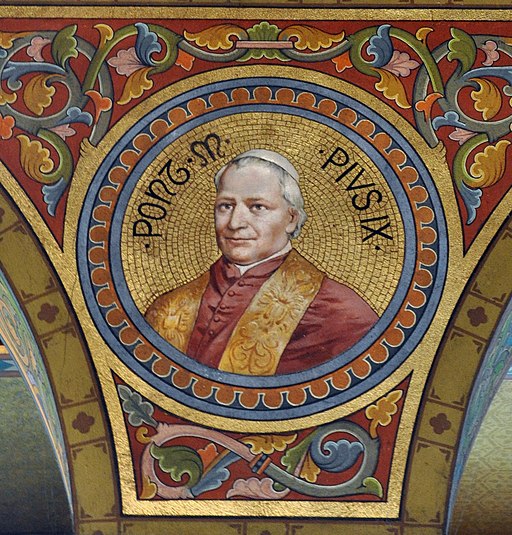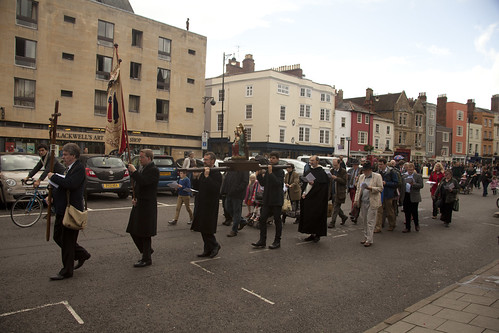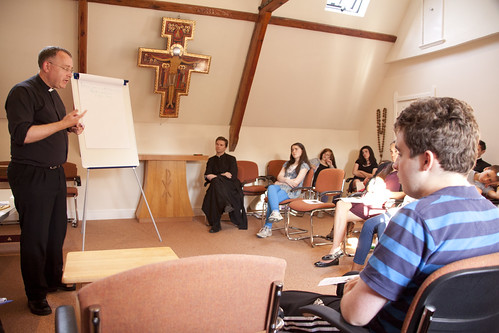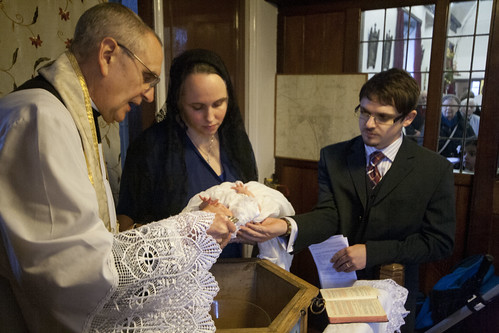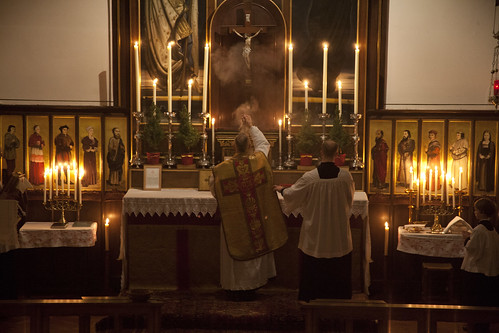There is one really troubling paragraph in the Exhortation.
It's not the bit in which the Holy Father rejects 'trickle down theories'. Economics is not 'faith and morals' and his views on this subject don't bind Catholics, although Catholics would be foolish indeed to take up dogmatic economic liberalism.
It isn't the bit about promethean neo-pelagians, which could mean a lot of different things and is not exactly news, coming from Pope Francis.
It isn't even the bit about the Jewish Covenant. This is a bit unclear, but this kind of thing has been said a lot in official (not necessarily magisterial) documents, and the problem, if it is one, is a long-established one.
No, the problem is this.
"
Non-Christians, by God’s gracious initiative, when they are faithful to their own consciences, can live “justified by the grace of God”, and thus be “associated to the paschal mystery of Jesus Christ”. But due to the sacramental dimension of sanctifying grace, God’s working in them tends to produce signs and rites, sacred expressions which in turn bring others to a communitarian experience of journeying towards God. While these lack the meaning and efficacy of the sacraments instituted by Christ, they can be channels which the Holy Spirit raises up in order to liberate non-Christians from atheistic immanentism or from purely individual religious experiences.(EG 254)"
Remember, first, that Jews are excluded from this generalisation: their situation has been addressed separately (247-249). They are not part of conventional 'inter-religious dialogue', they are
sui generis. The section on inter-religious dialogue has two paragraphs on Islam preceding the paragraph just quoted; this looks like taking a step back to make a generalisation about all non-Christian and non-Jewish religions.
It appears to be saying that when individual non-Christians, who have some intimation of the existence of God and even some kind of relationship with him, get drawn into some kind of possibly idolatrous cult, this is not only a good thing but a means of salvation for them. This would appear to invert the teaching of the Church, which is that all are bound to believe in God and worship Him (by prayer, for example), and that idolatry is not a way of doing this, but a way of
not doing this. It is the worship of something other than God - idols - and is against Natural Law.
This comment, left on on earlier post in this series, deserves wider attention.
I don't see that the statement 'Non-Christians, by God’s gracious initiative, when they are faithful to their own consciences, can live “justified by the grace of God”, and thus be “associated to the paschal mystery of Jesus Christ”', is unclear. The key notions are being a non-Christian, being faithful to your own conscience, and being justified by the grace of God. Being a non-Christian is self-explanatory. Being faithful to your conscience means doing whatever your conscience tells you is right, and the fact that it is applied to non-Christians means that the commands of conscience in these cases are not considered to include conversion to Christianity. Being justified by the grace of God means that you are saved.
The passage insinuates, but does not clearly state, that the rites of non-Christian religions can be channels of sanctifying grace, but it does clearly describe such rites as good and even as sacred. Things can of course be good and sacred without being channels of sanctifying grace, and not all grace is sanctifying grace. It is reasonable to describe the work of the Holy Spirit as a grace of some kind, so since the passage describes the rites of non-Christian religions as works of the Holy Spirit, it describes these rites as conveying grace.
Of course you will be puzzled by this passage if you begin with the a priori assumption that the Pope cannot be describing idolatry as good or as a channel of grace. But there is no basis for this assumption. The Pope is not God, and this document is not an infallible definition or even clearly intended to teach authoritatively on matters of faith and morals. It is the personal opinion of the Pope, and thus there is no barrier to its expressing claims contrary to the Catholic faith, if that is what the Pope happens to believe.
My concern from the start in blogging about Pope Francis has not been to hide those views of his with which I don't agree, or to twist his words into meaning something different from what he intended. My concern, rather, has been twofold: to understand his thinking, and to come up with ways in which Catholics attached to the Traditional Mass can engage positively with it. Ways, for example, in which to make those influenced by the Holy Father stop and think, that perhaps really their concerns are not best served by attacking the Traditional Mass.
In this case the best approach might be to consider the possible scenarios the Holy Father may have in mind. I differ from the commenter I quote above in thinking that, even at a purely human level, Pope Francis can't have idolatry in mind. If you said to him: 'Pope Francis, idolatry is a sin isn't it?' He wouldn't say, 'Oh no, not at all, the First Commandment has been abolished by Vatican II.' As a matter of fact, he is quite fond of talking about the sin of idolatry, interpreted in quite a broad sense. In this very document he says (55)
The worship of the ancient golden calf (cf. Ex 32:1-35) has returned in a new and ruthless guise in the idolatry of money and the dictatorship of an impersonal economy lacking a truly human purpose.
When he says that the rites of non-Christian religions can be 'channels of the Holy Spirit', he doesn't have, at the front of his mind, the example of the worship of the Golden Calf. Either he has forgotten that many non-Christians are idolatrous, or he believes that they are not.
The second possibility can be expressed like this. It may be argued that the condemnation of idolatry we hear in Scripture does not apply to the religious rites of, for example, modern Hindus and Animists. You often hear Christian homosexual activists saying that what St Paul condemned is not what homosexuals do today, it is different somehow. And it is true that we need to exercise some caution in applying the categories found in the Book of Deuteronomy and so on to people we meet today. Specifically, the point of idolatry as condemned in the Bible is that the worshipper addressed himself to the idol, and not to a (genuine) supernatural reality which it represented. Depending on the Hindu you ask, you may hear arguments to the effect that this criticism does not apply to them, any more than to the Catholic cult of icons.
This is all far too complicated to attribute to the Holy Father, of course, on the basis of this paragraph. I mention it because it is one line of thought which his defenders or those influenced by him might wheel out. And it doesn't work. Because the Catholic cult of images is premised on the Incarnation. We have an incarnational religion because it is the religion of the incarnation. The ancient Jews were right not to use images in the way we use icons and holy statues because God had not taken flesh, which is the pre-requisite for Him to be represented and honoured by way of honouring that representation. (Images of God the Father are visual metaphors, and are not given the honour accorded to images of Our Lord. We don't light candles in front of images of the Ancient of Days.)
I can only leave this issue with the hope that it will be clarified in some authoritative way. There is enough confusion about interreligious dialogue already.
Pictures: honouring images of the Virgin and Child, at Walsingham, at Willesden, and at Caversham.
